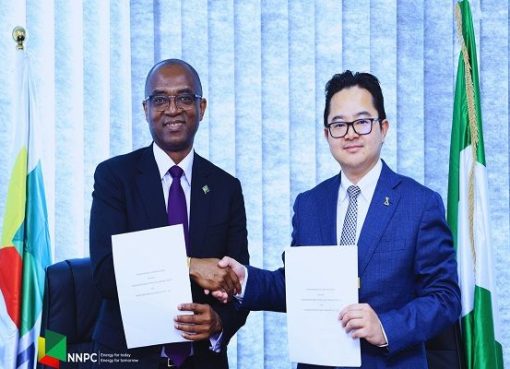COVID-19 has hit the fossil fuel industry hard. Throughout the pandemic, renewables seemed to offer a better dependable alternative to fossil fuels. Minimum disruption to the supply of renewables was due to the ease of set-up and remote operations.
However, in the case of fossil energy, disruption was more evident as it requires direct human management. With the benefits of renewable energy increasingly evident, a post-pandemic transition to a greener economy is gaining a lot of popularity among the government, corporates, and the public.
Bringing renewable energy to the forefront has both short-term and long-term benefits. The short-term benefits would lead to economic activation and job creation and, the long-term benefits would result in a more sustainable and environment-friendly fuel with lower/zero carbon footprint.
This is why the government in both developed and emerging economies are considering investing in green/renewable energy to stir the economy in post-pandemic stimulus measures.
Also, the public sentiment is now more supportive of transitioning to cleaner energy options to meet sustainability goals. Recent polling data indicates that voters across emerging and developed economies are broadly supportive of a green economic recovery from COVID-19.
Transition to a green economy will require incentivising the domestic markets to accelerate the adoption of renewable energy projects. Therefore, emerging economies would need to go beyond their prior commitment to investing in green energy.
These economies would need to look into both structural and financial set-up to come with innovative ideas that can smoothen the pivoting of new green initiatives.
This article discusses these micro and macro ways of providing impetus to green/renewable projects through financial and structural solutions.
Government-led funding or stimulus package
The current pandemic resulted in significant foreign investment outflows and a reduction in exports. The repercussions might be profound for the emerging economies.
In such a situation, emerging economies that are considering green investment as the next growth opportunity have a problem to solve in terms of procuring the necessary funds.
The government in emerging economies need to work on two fronts. One, they should explore more ways to gain domestic support from private firms and financial institutions and enable self-reliance.
Second, build green initiatives robustly into the economies by making it a part of the upcoming stimulus package aimed at reviving economic activities.
These stimulus packages should be well designed for long-term growth. They should aim at providing a boost to domestic entrepreneurship and funding as well as create new jobs. A part of this package should be allocated to the local community development, job creation for the workforce in the community, and promotion of gender equality through equal employment opportunities.
The key objective of these packages should be to develop new skills in the population; to prosper local communities, and to make the environment healthy with zero carbon footprint.
Promoting healthy competition for grants at colleges and universities
In emerging economies, educational institutes and universities are not thoroughly supported and utilised for research work. More than often, a lot of innovative ideas from research students do not take off due to a lack of funding.
It results in the foregone opportunity to tap into business and scientific ideas that could be utilised to create cheap green energy sources and run projects to meet energy requirements at the local level.
The process of driving innovation at education institutions could be facilitated with a call out to participate in grants. For an idea that is scalable to large geographies, private companies can also be invited to participate in the grant process.
The involvement of private companies/firms can help to accelerate the development and utilisation of energy solutions on a large scale. This process of funding and developing think tanks at the education institutes can provide impetus to making the next workforce equipped with new skills and hence job-ready.
Standardising of processes to accelerate renewal energy projects uptake
The process of accelerating green energy initiatives will require efficiency and transparency from emerging countries. For expediting the procurement of funds from both domestic and international investors, policies and processes should enable ease of business, reduce bottlenecks at the state/local community level, provide equitable tax benefits, and decrease time to get the project off the shelf.
Development of a packaged solution (consisting of protocols, tools, templates, etc.) at the national level and cascading it to the local government will result in streamlining and standardisation of the processes.
It will also help avoid several rounds in the tendering process, reduce project time and cost, and provide greater confidence to investors. For this task, a special committee can be appointed by the Central government. This committee can also collaborate with International bodies to learn about successful endeavours in other countries.
A practice on similar lines is employed by IFC, a member of the World Bank Group in African countries. It provides a one-stop-shop program that includes advice to government, competitive financing, and tools for risk management and credit enhancement, etc. This program is unique because it de-risks the projects that deliver lower tariffs, streamlines processes, and achieves economies of scale.
Opening phases in the green energy project to different investors
Creating customised committees to finance various stages of a project life cycle is a way to meet the risk appetite of the various investors. This is one of the unique financing practices followed by Climate Investor One ( CIO), a finance facility , which separates funds for each phase.
This way it is able to attract investors who are interested in different phases of project life cycle, thus decreasing the overall financial risk associated with the project.
Innovative financing solutions
Blockchain is an innovative new platform that can be explored to connect renewable energy development projects with investors and energy consumers. WePower, an Ethereum based blockchain platform, is one such example.
The tech platform enables early purchase and sale of energy production to energy consumers and investors on development projects. It connects renewable energy producers with potential buyers, thus helping in accumulating funds for developing renewable/green initiatives.
Another example is Power Ledger (Australia based), a platform that enables households and companies owning renewable energy to trade electricity with local communities at reasonable prices.
While blockchains make the process of procuring finance simple at a micro level but the scalability at a large-scale needs testing. However, such efforts at the local community level could help meet local needs and reduce carbon footprints.
The current crisis has given us enough reasons to reinvent ourselves. Modernising energy through renewable and greener solution is a smarter way to transition away from outdated systems with a high carbon footprint.
With the transition accurately timed, the economic recovery has the potential to generate new jobs and take us closer to the goal of a more environmentally and financially sustainable future.
Source: e27










